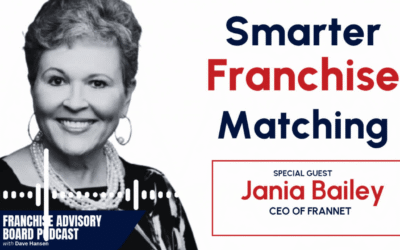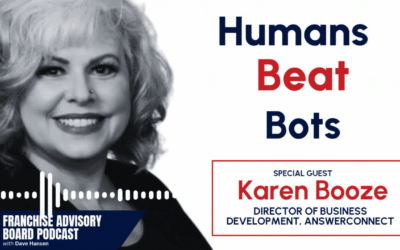There’s a difference between operating a franchise and building a transferable asset. In this conversation with Fiona Styant, VP of Development at MOLLY MAID Canada, we unpack how intentional exit planning, clear financials, and goal-based coaching help franchise owners stay in the growth zone from day one—so they’re not just earning income but compounding value they can later sell.
Meet Fiona Styant
Across 22 years at MOLLY MAID—spanning operations, IT, and development—Fiona has helped shape a system that’s widely recognized in Canada and is now expanding into rural markets with a cleaner-operator model. Her perspective blends franchising discipline with genuine empathy for owners, showing how care and accountability can coexist within a high-performing brand.
Build for the exit from day one
“We start it in training week and talk about exit strategy and long-term plans.”
Fiona’s team introduces exit planning from the start of onboarding. Franchisees are guided to set five- and ten-year goals that define their desired business value and growth benchmarks. This approach transforms daily operations into purposeful steps toward a clearly defined financial outcome.
Coach for goals, not audits
“It’s not the coach saying ‘do this.’ It’s ‘you said you want this—I’m here to help you achieve it.’ We use four pillars: performance, engagement, compliance, satisfaction.”
Rather than auditing for compliance, MOLLY MAID’s coaches partner with owners to align performance with self-defined goals. Through structured reviews across the four pillars, franchisees evaluate their progress and receive data-driven feedback. This collaborative model builds trust, reduces defensiveness, and reinforces a growth-focused culture.
Handle plateaus with data and dignity
“If a couple of quarters show stagnation or decline, we step in… we frame it as business value, profit, and a win-win partnership.”
When growth stalls, Fiona’s team responds with empathy and evidence. By presenting clear performance data—sales, retention, and customer metrics—they open honest conversations about next steps, whether that means reinvestment or preparing for a strategic exit. This keeps both profitability and dignity intact.
Clean financials drive valuation
“Standard chart of accounts and normalized statements—owners must explain true profit.”
Fiona stresses that transparency equals value. By standardizing the chart of accounts and normalizing statements, MOLLY MAID ensures that each franchisee can accurately communicate their profitability to potential buyers. Three consecutive years of clean financials often make the difference between a quick sale and a discounted exit.
Buyers don’t pay for “potential”
“People will not buy on potential. They want to see a growth trajectory—that’s when you get the higher multiple.”
Fiona closes by reminding us that sustained growth, not optimism, drives enterprise value. Buyers invest in proven systems and consistent performance, not hypothetical opportunity. A franchise showing momentum earns trust, confidence, and stronger multiples.
Wrap up Thoughts
This conversation reminded me that sustainable success blends data and humanity. Fiona’s process gives owners agency, not orders—anchoring tough conversations in care and shared purpose. For me, it reinforces how tools like ClientTether can help franchisors maintain this growth rhythm—tracking, measuring, and coaching owners toward measurable business value.




